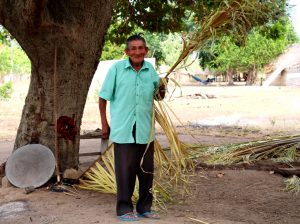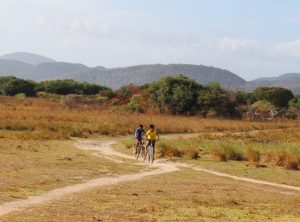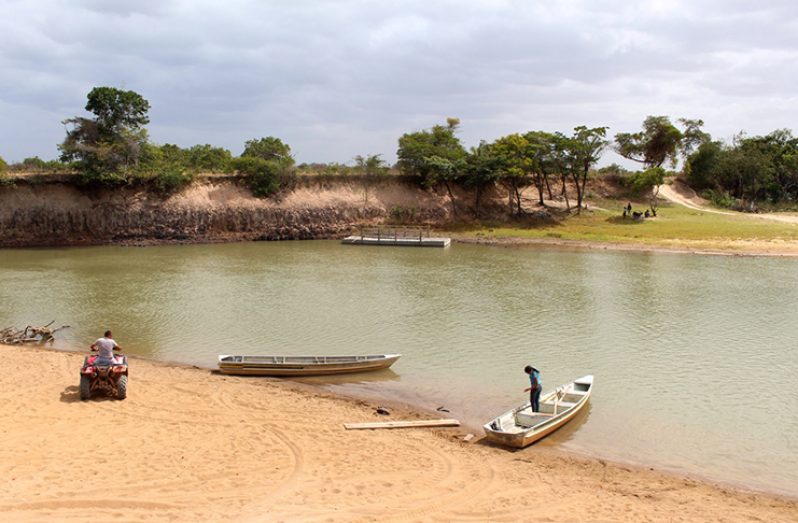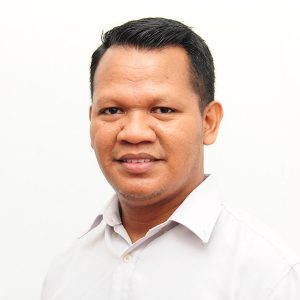Story and photos by Alva Solomon
IT is Good Friday and a family is picnicking on the edge of the Rupununi River near the “highland” village of Yakarinta.

It is a strange sight this time of year, given the landscape close to the river banks was covered with water several weeks ago. For some at this North Rupununi village it is a time to relax, for others it spells of worrisome trips to the dry wells in the village of 590 residents.
Yakarinta lies high above the general landscape of the terrain and is approximately two miles away from the river banks.
According to Toshao John Benjamin, life can be bitter-sweet at the predominantly Macushi village as the residents live their daily lives, impacted annually by the river.
He said during the dry season, the water level at the Rupununi River drops considerably and residents are able to walk and ride their motorcycle and bicycles to and from the village comfortably.
However, when the water is high during the rainy season, the entire landscape from the edges of the more populated parts of Yakarinta, outward to the Rupununi River, is usually covered with water.
“It is something we have been battling all our lives,” Benjamin said. He said under his leadership, it was recognised that there was need for a raft to cross persons with heavy equipment over the river during the dry weather.

The raft was later procured and it is usually moored close to the river banks to enable persons to transport their goods as well as bikes across the river.
When the water rises, residents can only recognise that they are passing over the river while en-route to the highway which links the main public road between Lethem with Georgetown, by trees located on the periphery of the river banks.
Benjamin said an immediate problem is the upgrading of the stretch of roadway which connects the highway to a section of the landscape near the river banks.
He said the road usually becomes muddy during the wet weather conditions.
“We would come out the boats and walk or ride the piece to the highway,” he said, noting that this occurs during wet weather conditions.
“The water reaches right up to the first house when you enter the village because this village here is on a highland,” the village captain said. He said for that reason, there is no home for at least a mile between the village and the river bank.
But while residents were enjoying the dry weather on Good Friday, there is another problem. At the moment, the wells in the village are dry and families usually dig additional wells or source water from the river only for washing.
“Right now some persons cleaning the water holes (wells) to get more water because the place dry now,” Benjamin said.
Two weeks ago, the mechanical parts at a solar-powered well from which the primary and nursery schools at the village source water, broke down. The village captain said residents would have to go down into the well to remedy the problem.

Despite the battle with the river, residents of the village are engaged in various forms of economic activities, mainly farming which is done for home use. Some residents also rear poultry as well as cattle and sheep while others eat fish on most days.
“Sheep is a big thing here because it is something that pass down,” Benjamin said.
Villagers live in unity at Yakarinta, and most persons noted that while there are three Christian churches in the community, residents usually cooperate to ensure the village develops. “We also put our politics aside,” Toshao Benjamin said with a smile.




.png)









